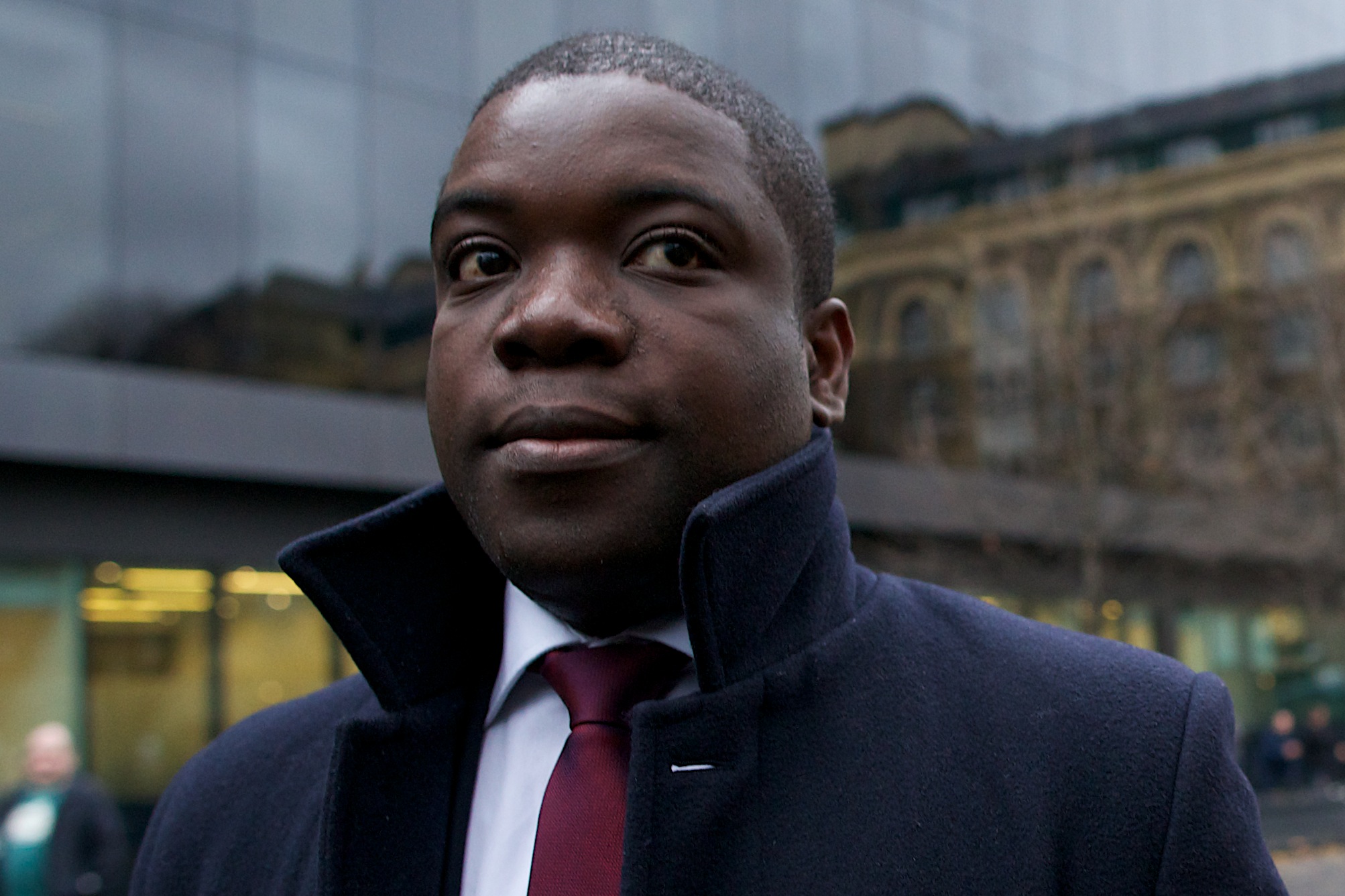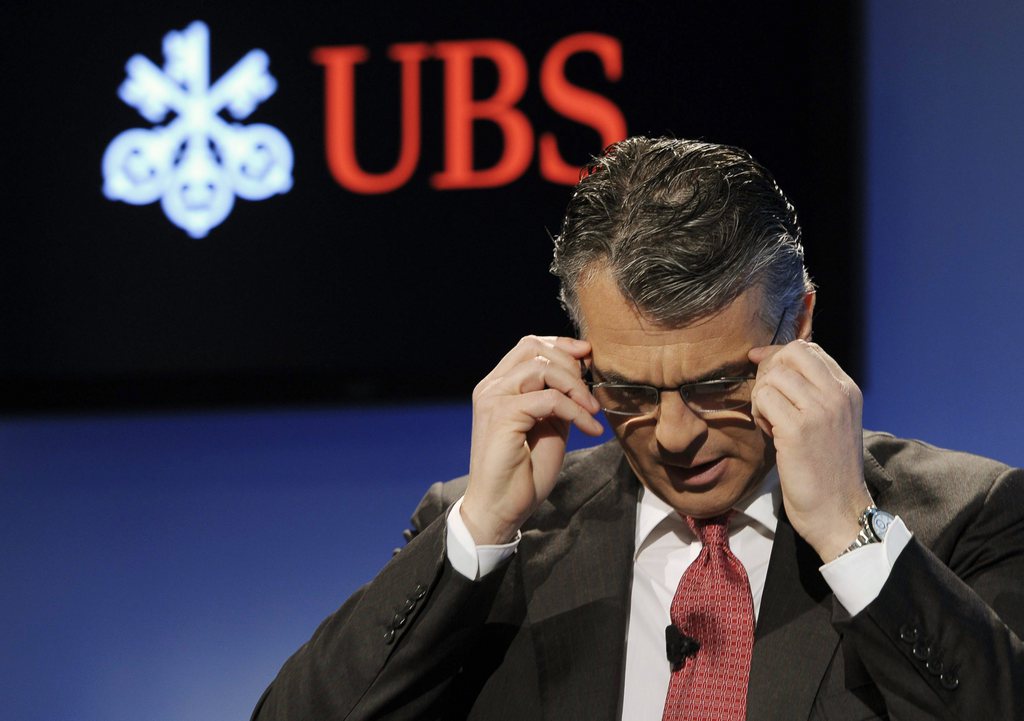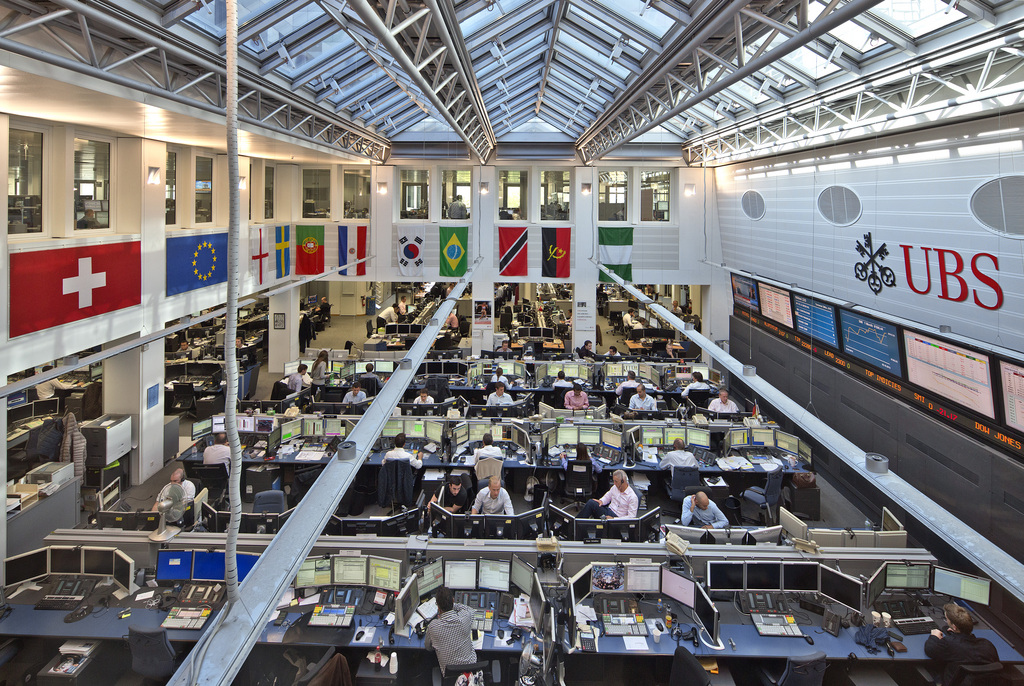Media shake heads and point fingers at UBS

Thursday brought more bad press for Swiss bank UBS in the form of critical editorials as well as the news that two former traders were arrested in New York on Wednesday. And as some put it, the Libor scandal is far from over.
UBS announced it had agreed to pay around SFr1.4 billion ($1.53 billion) in fines to United States, British and Swiss authorities to resolve Libor-related investigations. In a separate development on Wednesday, US prosecutors charged two former UBS traders with conspiracy regarding benchmark interest rates.
“The settlement announced on Wednesday – moderately expensive in terms of cash and reputation – is only a partial solution as it does not eliminate the processes of other authorities and especially civil complaints,” pointed out the Neue Zürcher Zeitung (NZZ) newspaper.
“UBS spares main culprits” was the headline in the Tribune de Genève. It said that although UBS CEO Sergio Ermotti had assured everyone that 36 former staff implicated in the Libor fiddling had either walked the plank or been pushed, the bank’s “main culprits” were still at large.
The paper said that according to Finma, not a single UBS board member had known about the exposed embezzlement: “This ignorance ought to be viewed as just as serious a mistake as those levelled at the traders.”
This was not the first time that those in charge at UBS had got off without a warning, it said, pointing to the bank’s exposure in the subprime crisis and the development of tax evasion advice given to US customers, with no regard for US law.
Swiss President Eveline Widmer-Schlumpf has condemned the behaviour of the UBS bankers who manipulated the Libor rates.
“I’m outraged. It’s just appalling,” Widmer-Schlumpf said in Bern during a press conference on Thursday.
Widmer-Schlumpf, who is also the finance minister, did defend the Swiss Financial Market Supervisory Authority (Finma). She said that it had functioned well, and that the authorities from the different countries had collaborated brilliantly.
Asked whether the credibility of Finma was tarnished by the presence of someone involved in the scandal, Widmer-Schlumpf said that Finma would have to assess that itself. As it was, Mark Branson had quickly stepped down.
Widmer-Schlumpf, whose presidential term ends this month, said she expected that parliament would deal with the affair.
Growing list
As the Zurich-based Tages-Anzeiger also pointed out, the Libor issue is only the latest in a long line of scandals.
“Anybody curious to know where there is smoke or fire at the bank need only glance at the annual report – at the very back of which is a list of pending legal processes around the world,” wrote the paper.
It noted that in 2006, this list fit on a single page; the list now fills ten pages of the 2011 report.
The Tages-Anzeiger also criticised the role of banks division head Mark Branson, who was CEO of UBS Securities in Japan when wire fraud was going on.
“How can he ensure – at his bank and others – that there is a radically different culture of risk than the one that he was partially responsible for? And how can he expect that other banks keep risks in check when he himself didn’t have them under control?” wondered the paper.
“Beyond repair”?
While acknowledging that many of the world’s largest financial institutions were still being targeted by various authorities, the NZZ had something positive to say about the current management at Switzerland’s largest bank.
“UBS’s leadership under Sergio Ermotti and Axel Weber is at least redeemed by the fact that they are trying to eliminate the backlog … this will hopefully result in a less scandalous corporate culture,” according to an editorial in the NZZ.
“UBS pays a heavy price for its fraud,” was the headline in La Liberté in Fribourg, which pointed out that the fine was three times that of British bank Barclays.
It quoted an anonymous UBS employee who said: “UBS’s image is beyond repair. It’s like a brand of luxury spring water which has been polluted by mercury.”
Nevertheless, La Liberté felt UBS had been hard done by: Barclays, after all, had played a key role in the scandal but had only copped a SFr450 million ($493.5 million) fine.
Moving forward
“In order for UBS to find its honour again, it has to divorce itself from the system of the old days. It needs some sort of due diligence: a pronounced sense of responsible awareness within every employee both for the company as well as society,” prescribed an editorial in the Berner Zeitung.
The paper also called for lower bonuses, plus the “painful acknowledgement” that a culture of “fast money” and a lack of conscience had “crept in” – without which there would be more bad surprises in future.
London’s Financial Times was blunter: “The bank needs to pull off something that has always defeated it – get a grip on the business.”
(with input from Thomas Stephens)

In compliance with the JTI standards
More: SWI swissinfo.ch certified by the Journalism Trust Initiative












You can find an overview of ongoing debates with our journalists here . Please join us!
If you want to start a conversation about a topic raised in this article or want to report factual errors, email us at english@swissinfo.ch.